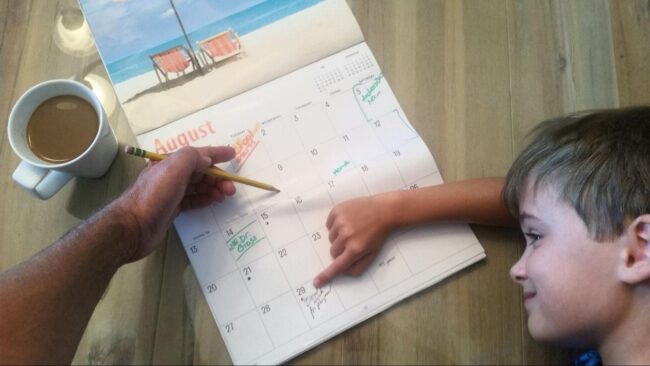What is processing speed?
Processing speed is one of the major steps in the cognitive process. It is an essential part of learning, academic performance, reasoning, and intellectual growth. Simply put, processing speed is how quickly the mind can make sense of the information it receives and react to it. This could be reading words on a page, catching a ball that is tossed from across the field, or listening to and keeping up with a friend’s story.
If you are the parent of a kid with a slow processing speed, you may experience frustration because of how sluggishly it seems they move. It’s likely you argue with your child about homework and chores more than either of you would like. The good news is that there are ways to help your child speed up in life that can be built right into your routine!
Many scientists believe differences in processing speed are linked to biological factors. They hypothesize that less protective layers of myelin surrounding brain cells, known as neurons, could be a possible factor. Another potential explanation is variations in the amounts of certain neurotransmitters, which function like signals, that carry messages throughout the brain. Larger spaces between synapses, the junctions between brain cells, could also be a factor in slower processing speed. These all indicate that a person’s level of processing speed is not a choice. Some people can simply understand and respond to information more quickly than others!
Although some people may have a stronger natural ability, there are skills and habits that can be used to support growth in processing speed. Many kids with slow processing speed also struggle with particular executive functioning skills, which may magnify the impact of slow processing. Despite naturally occurring differences in brain biology, executive functions are skills that can grow. Consider them like muscles – the more you practice, the stronger they get! If a runner doesn’t have the longest legs but still runs every day, they will grow to be faster and more athletic than a long-legged couch potato.
So what are executive functions?
Executive functions are the collection of skills that help our brain reason, make decisions, set goals, and get stuff done. Beyond just affecting how efficiently a child can accomplish tasks, they impact development socially, emotionally, and intellectually throughout their whole lives.
Focus is an essential executive function thinking skill. It can be broken down into task initiation, sustained attention, and task persistence. Working on these skills can help to combat procrastination and teach children how to ask appropriate questions about what needs to get done. With slow processing speed, children may be overwhelmed with all the components of a project and struggle to identify where to begin. They may be so focused on comprehending what it is that they’re dealing with that they miss essential instructions. They could also have difficulty dividing a task down into smaller, more manageable chunks. Addressing a child’s abilities these skills can help them improve at gathering information in their head, working through projects, and asking for support when needed.
Time management is another executive functioning skill that can support children with slower processing speeds. Responding to things in a timely fashion and being on top of making and sticking to a schedule can be learned. Time management involves self monitoring, having an appropriate sense of urgency, and being able to estimate how much time is needed to complete a task. Better time management isn’t necessarily about going faster, but it’s about learning to be realistic, structured, and punctual with time. Children with deficits in processing speed may simply need a longer time to complete tasks. Instead of trying to get everything done at once, with good time management habits, they can learn to anticipate what needs to be done, how long it will take, and when to do different parts of it. This applies to homework, getting ready for school in the morning, being prepared for a family trip, or budgeting enough time before soccer practice.
These connect closely with another important executive functioning skill: planning. Prioritization, sequencing, and foresight are all components of planning. With well developed planning skills, children are prepared and aware of what needs to be done. Checklists, schedules, and reminders can be built into your regular daily routine to help with developing skills in planning. Learning to work backwards from a final vision and build a step-by-step plan can support children with slow processing speeds in getting their goals met, both short term and long term. Also, in working through a plan for a project or goal, children will be automatically processing the information about each step in their brains. This helps them familiarize themselves with the information. As they re-encounter the information associated with each step, it will be quicker for them to understand and move forward through their plan.
At LearningWorks for Kids, we don’t consider processing speed to be an executive functioning skill. Rather, it is something with a natural variation between people. However, processing speed isn’t the only aspect of the cognitive process that impacts the efficiency of getting stuff done. Sharpening the executive functioning skills that support processing speed can help children’s overall development too.
Our site offers programming that focuses on developing specific skills such as time management, focus, and planning through digital play. The courses we’ve developed engage with and meet the interests of kids today! Our method of Detect, Reflect, and Connect is a teaching tool that helps children think deeply about what they’re learning and apply it to other aspects of their lives. Check out our classes at the link above, and for further resources, feel free to look through our library here.






